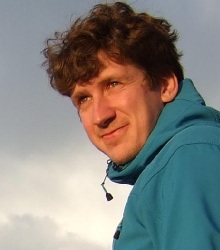Research
My research is focused on state estimation in nonlinear and/or non-Gaussian state space models.
Kalman filters for nonlinear state space models
Exact state inference in nonlinear state space models is intractable in general. If the nonlinearities are moderate, however, a Kalman filter can be used to propagate a state estimate and its covariance throughout time. The required moment computations (mean, covariance) are either carried out by simplifying the state space model (e.g. linearization in the extended Kalman filter, EKF) or turning to sampling based methods (e.g. deterministic sampling in the "unscented transform", UKF).
The research aims at investigating and comparing different approximate moment computation techniques in terms of their accuracy, computational complexity, and chances of success for specific nonlinearities. The Taylor expansion of a nonlinear function is reconsidered, and used to come up with a simple (also in terms of notation) conceptual solution that can be used to compute the mean and covariance of a nonlinearly transformed random variable up to arbitrary accuracy. Also, sampling based techniques (as in UKF and the recent cubature Kalman filter, CKF) are investigated in order to clarify some widespread accuracy misconceptions. Although not evident at first sight, EKF variants can be implemented in a sample based framework as well, which establishes some connections between UKF and EKF.
Ensemble Kalman filters
The Ensemble Kalman filter (EnKF) is used to estimate the state of extremely high-dimensional models in geoscientific problems. Regardless of its popularity and the many citations in the meteorology and oceanography literature, it has received only little attention by control and signal processing researchers. The ever increasing amount of sensor data to process and the inherent need for scalable algorithms, however, motivate for a closer look at the EnKF.
Filtering in state space models with heavy tailed noise
Based on Student’s t distribution, a filtering algorithm has been developed that is a (nonlinear) generalization of the Kalman filter. The choice of the t distribution allows for a natural treatment of heavy tailed measurement AND process noise. In order to obtain convenient closed form expressions, careful approximation steps are required that amount to fitting one t density by another t density. The related publication contains a challenging tracking example in which the new algorithm outperforms the best linear estimator while keeping a simple structure and low computational cost.
Particle filters/smoothers
The restrictive requirements for running a Kalman filter (unimodal densities, continuous state space, somewhat linear model) can be overcome by using particle methods. In an application oriented project, filtering and smoothing algorithms have been tested on a road constrained tracking problem. The related paper covers modeling in the hybrid state space (position and speed continuous, road segment discrete), derivation of the required densities (including the use of heavy tailed noise), estimate computation from particle clouds, and a comparison and critical evaluation of different particle smoothing techniques.

PhD Student
(Swedish: Doktorand)
- Phone:
- +46 13 282306
- E-mail:
- roth_at_isy.liu.se
- Address:
- Dept. of Electrical Engineering
- Linköping University
- SE-581 83 Linköping
- Sweden
- Visiting Address:
- Campus Valla
- Building B
- Room 2A:552 (in the A corridor on the ground floor between entrance 25 and 27)
Page responsible: Michael Roth
Last updated: 2016-11-08
 LiU startsida
LiU startsida
